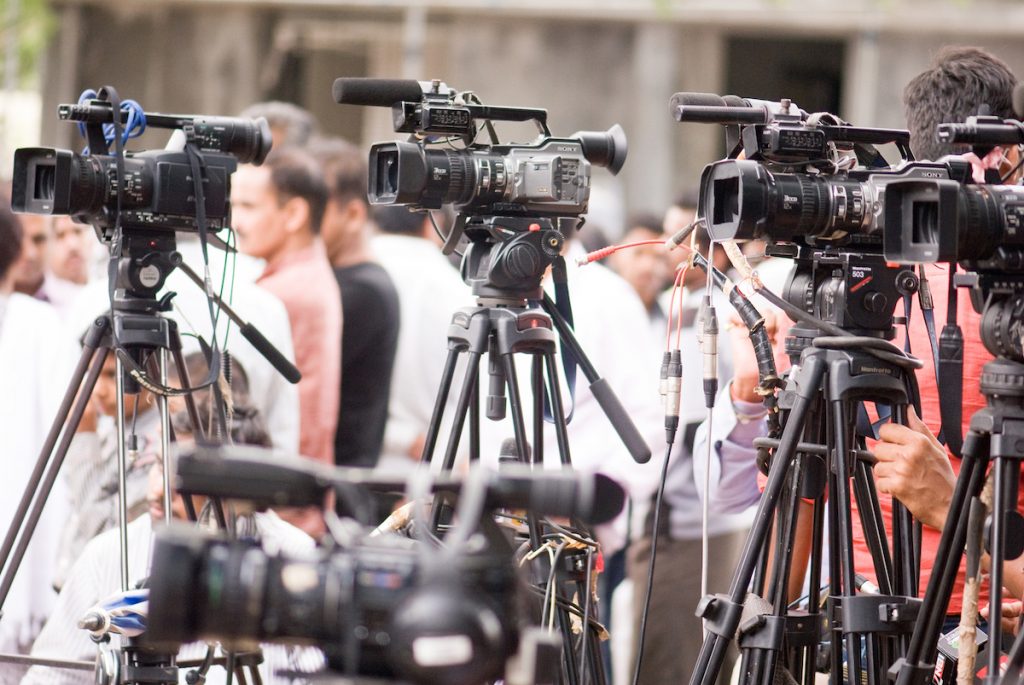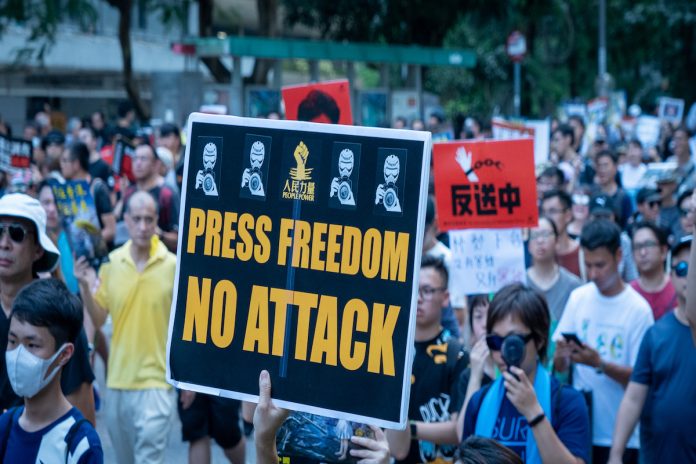Reporters Without Borders (RSF) has unveiled its list of the top 20 worst digital predators in 2020, shedding a light on those companies and government agencies which “use digital technology to spy on and harass journalists” to thwart news-gathering activities.
RSF said the incomplete list includes digital predators representing “a clear danger for freedom of opinion and expression, which is guaranteed by article 19 of the Universal Declaration of Human Rights.”
Released on World Day Against Cyber-Censorship March 12, RSF said it was for the “first time publishing a list of digital entities whose activities are tantamount to preying on journalism.”
The digital predators are divided into four categories based on their activities: harassment, state censorship, disinformation or spying, and surveillance.
“Whether state offshoots, private-sector companies or informal entities, they reflect a reality of power at the end of the 21st century’s second decade, in which investigative reporters and other journalists who cause displeasure risk being the targets of predatory activity by often hidden actors,” RSF said.
RSF said that digital predators operate in both despotic countries and in Western-based private sector companies “specializing in targeted cyber-espionage.”
The group notes that the power of press freedom enemies manifests itself in different forms.
“They locate, identify, and spy on journalists who annoy people in positions of power and authority. They intimidate them by orchestrating online harassment. They reduce them to silence by censoring them in different ways. They even try to destabilize democratic countries by deliberately disseminating false information,” RSF said.
RSF secretary-general Christophe Deloire warned that “authoritarian strongmen” opposed to press freedom “are extending their tentacles into the digital world with the help of armies of accomplices, subordinates and henchmen who are organized and determined digital predators.
“We have decided to publish this list of 20 digital predators in order not only to expose another aspect of press freedom violations, but also to draw attention to the fact that these accomplices sometimes act from or within democratic countries. Opposition to despotic regimes also means ensuring that the weapons for suppressing journalism are not delivered to them from abroad,” he said.

Below is a list of four of the worst offenders in Asia.
China
Ranking 177 out of 180 in RSF’s 2019 press freedom index, China made the digital predators list on account of President Xi Jinping’s successful effort to “impose a social model in China based on control of news and information and online surveillance of its citizens.”
RSF notes that the communist country has also been attempting to export “its oppressive model of control” by promoting a “new world media order” under its auspices. The detention of more than 120 bloggers and journalists, the deaths in detention of Liu Xiaobo and Yang Tongyan, and stiffer internet regulations that allow for imprisoning citizens for writing or sharing critical commentary online round out the reasons China made the list.
India
Violence against journalists — including six deaths in 2018 — and “reprisals by criminal groups or corrupt politicians” are among “the most striking characteristics of the current state of press freedom in India.”
RSF notes an uptick in attacks against journalists “who dare to speak or write about subjects that aggravate Hindutva followers,” as well as coordinated online hate campaigns intended to silence them, as one of the many dangers journalists face in the country.
The group said campaigns against women in the country are “particularly virulent,” while the use of criminal prosecutions to “gag journalists critical of the authorities” was another pressing media freedom issue.
The Philippines
With a chilling 2016 warning from President Rodrigo Duterte that journalists “are not exempted from assassination,” the murder of journalists “likely” at the hands of local politicians, and other government pressure to silence media critical of the government has landed the Philippines on the press predator list.
RSF noted the targeting of critical media outlets, including the “grotesque judicial harassment campaign against the news website Rappler and its editor,” as reasons for placing the Philippines on the list.
Persecution against journalists has been “accompanied by online harassment campaigns waged by pro-Duterte troll armies” and cyber-attacks aimed at taking critical media outlets offline.
Vietnam
Ranking just one spot above China on its global press freedom index, RSF notes that with all media forced to follow Communist Party orders, “the only sources of independently-reported information are bloggers and citizen-journalists, who are being subjected to ever-harsher harsh forms of persecution, including plainclothes police violence.”
RSF notes the increased use of criminal prosecution to silence critics, with many citizen-journalists being jailed or expelled in connection with their posts, as part of a rising “level of terror” being employed against government critics.
RSF said the government is ramping up digital repression methods, with the military in 2017 “unveiling the existence of a 10,000-strong military cyber-warfare department called “Force 47,” which is tasked with defending the Party and targeting dissident bloggers.”









